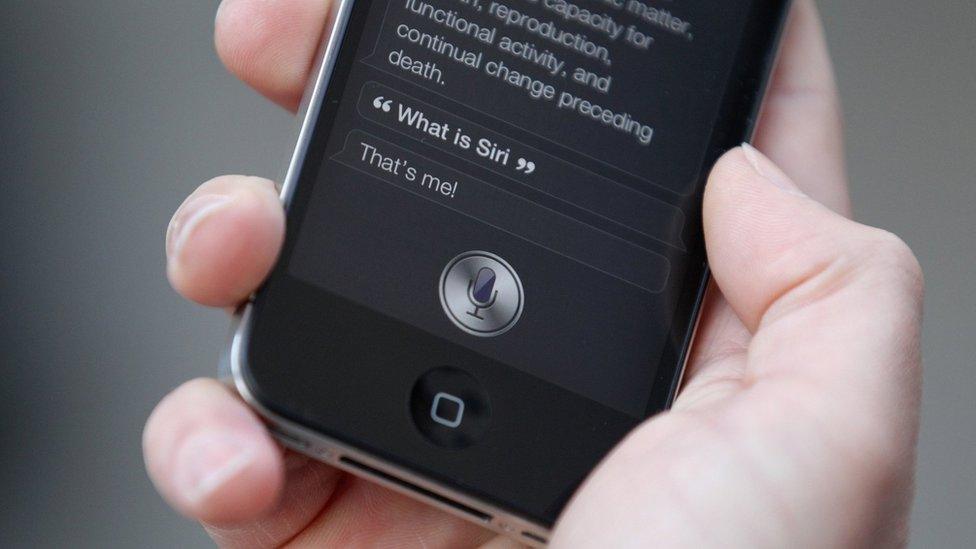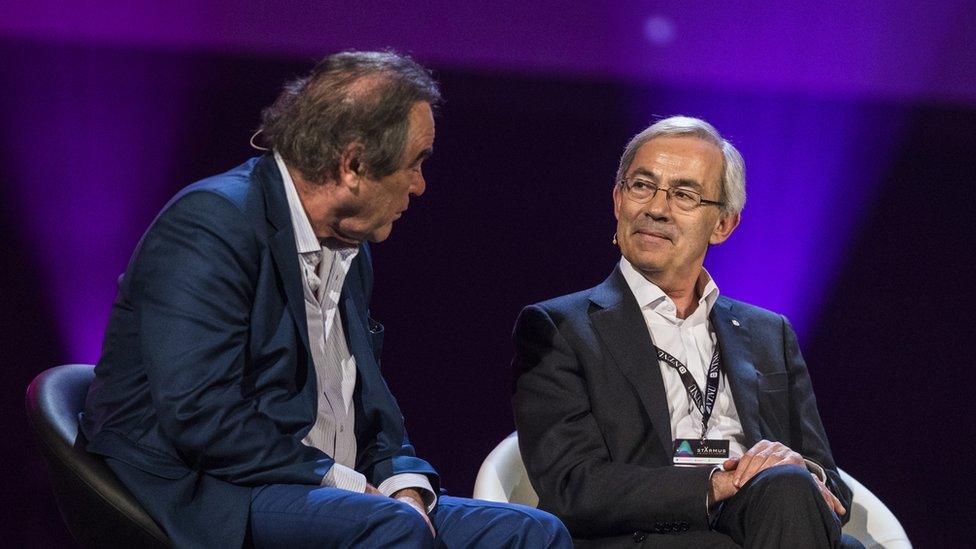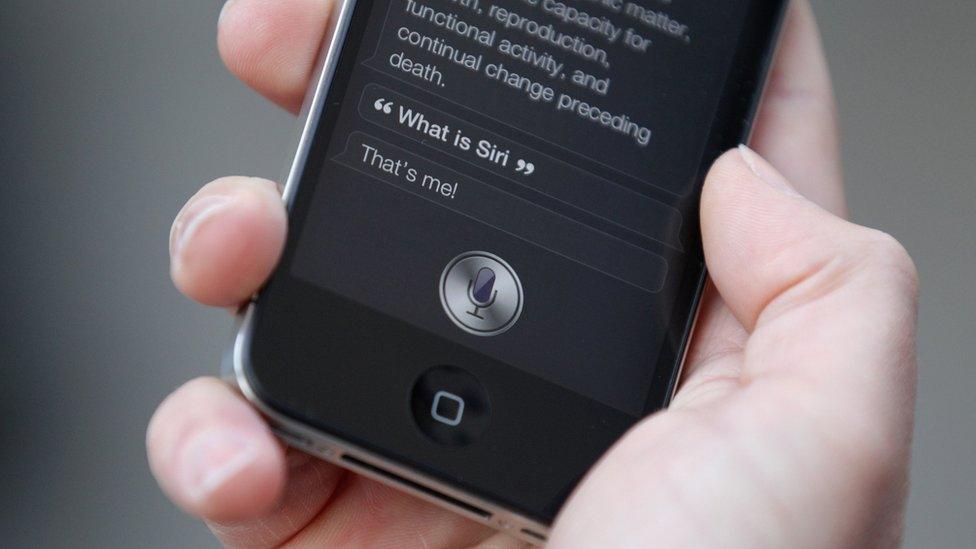Siri storm caused by economist's comments
- Published

When it comes to virtual assistants, do you trust a male or a female voice more?
A leading economist has inadvertently caused a storm by saying he preferred the voice on the iPhone Siri virtual assistant to be male because he felt that made it more trustworthy.
Nobel prize laureate Sir Christopher Pissarides's comments at a conference in Norway attracted fierce criticism.
He told the BBC he apologised for upsetting people and his comment was meant to be "light-hearted".
"It's a mistake and I'm sorry, but the audience was laughing."
Sir Christopher was part of an all-male panel taking part in a Q&A audience discussion at the Starmus Festival, external in Trondheim about the future of humanity.
During the conversation, he took out his iPhone and asked Siri a question about the temperature.
The answer was given in a male voice and when moderator Larry King pointed out that Siri is typically voiced by a woman in the US, Sir Christopher replied: "I chose a man because you trust the voice of a man more, I was told."
His comments were strongly criticised as being sexist by both the audience and later on Twitter.
Equality
However, he defended himself, saying: "I'm not trying to make excuses for myself, After I demonstrated Siri, the audience was laughing, I was being teased.
"I said it at the beginning of the panel and someone only raised it one hour later at the end of the session. It was the last comment made in a session lasting 70 minutes and my comment was the first comment. No one raised it at the time, but when the woman did raise it, I apologised."
Sir Christopher, who jointly won the 2010 Nobel Prize in Economics, said that earlier in the day, he had given a lecture about the future of work, in which he discussed two policies to empower more women in the labour force.
These were education for girls and government-subsidised elderly care centres so that instead of caring for family members, more women could enter the workforce and get jobs better suited to their talents.
"My work, over the last 40 years, has been dedicated to equality in the labour market. When people ask me what is the greatest problem in the labour market, I tell them equality between men and women and races. Of course I believe in equality," he said.

Film director Oliver Stone (left) was another panel member along with Sir Christopher Pissarides
The prestigious festival had already attracted negative comments for lacking invited female speakers.
Mr King and another moderator Neil deGrasse Tyson, were also criticised for failing to stop Sir Christopher's comments, according to news site Motherboard., external
Several high-profile attendees, including physicist Jim Al-Khalili (winner of the 2016 Stephen Hawking Medal for Science Communication), astrobiologist Sara Seager and the renowned astronomer Jill Tarter decided to walk out as a result.
The event's organisers later issued an apology, saying: "Starmus deeply regrets the sexist comments made by Chris Pissarides during a panel discussion and we accept the outrage that this has sparked.
"Our programme consists of incredible women and men from all over the world and we have made it clear that comments of this nature will not be tolerated at our festival."
'Social judgements'
The gender and accent of Apple's voice assistant across iPhone, iPad, Mac and other Apple devices has historically been dependent on regional settings. However, recent software updates have allowed users to change both the gender and accent via a menu.
"The comments made do reflect consistent results that people make social judgements about computer speech outputs, and those seem to relate to gender stereotypes that exist in the wider world," Dr Kate Hone, a computer science academic at Brunel University, told the BBC.
Dr Hones carried out a study in 2003 looking at which voices older adults would prefer to listen to on smartphones. Out of the 15 male and 17 female participants interviewed, the participants mainly preferred male voices, external because they found the voices to be more reassuring.
Other studies have produced similar results, with one in 1997 by Stanford University, external finding that people were more comfortable getting technical advice from a male voice, but preferred a female voice for tips on emotional issues.
'Idiotic'
However, Prof Aaron Sloman, an artificial intelligence and cognitive science expert at the University of Birmingham said he was not bothered how these voices sounded.
"It sounds completely idiotic to me," he said.
"The voice of a computer-generated chatbot is something that can be arbitrarily changed. I cannot see how gender would have anything to do with the reliability of the content or the quality of the engineering that went into the AI system."
Prof Sloman, who is 80, said that he has problems with his ears and some radio programmes feature male voices that for him are more penetrating and easier to hear rather than female voices.
"I don't understand why we are gendering our AI at all - it's a computer program, not a person," said Phoenix Perry, a lecturer in computing and researcher for feminism in science, technology, engineering and mathematics at Goldsmiths, University of London.
"When we use search, we don't think of Google or Safari as having a gender. I'm not sure why when we interact with it using voice command, it needs a gender. Microsoft Word, which can read out documents to you, definitely does not have a gender."
- Published7 June 2016

- Published14 August 2015
